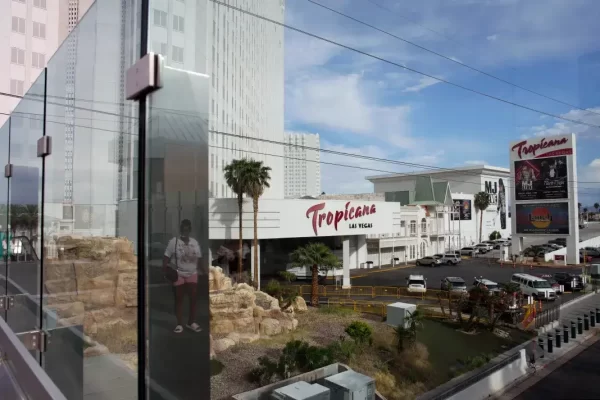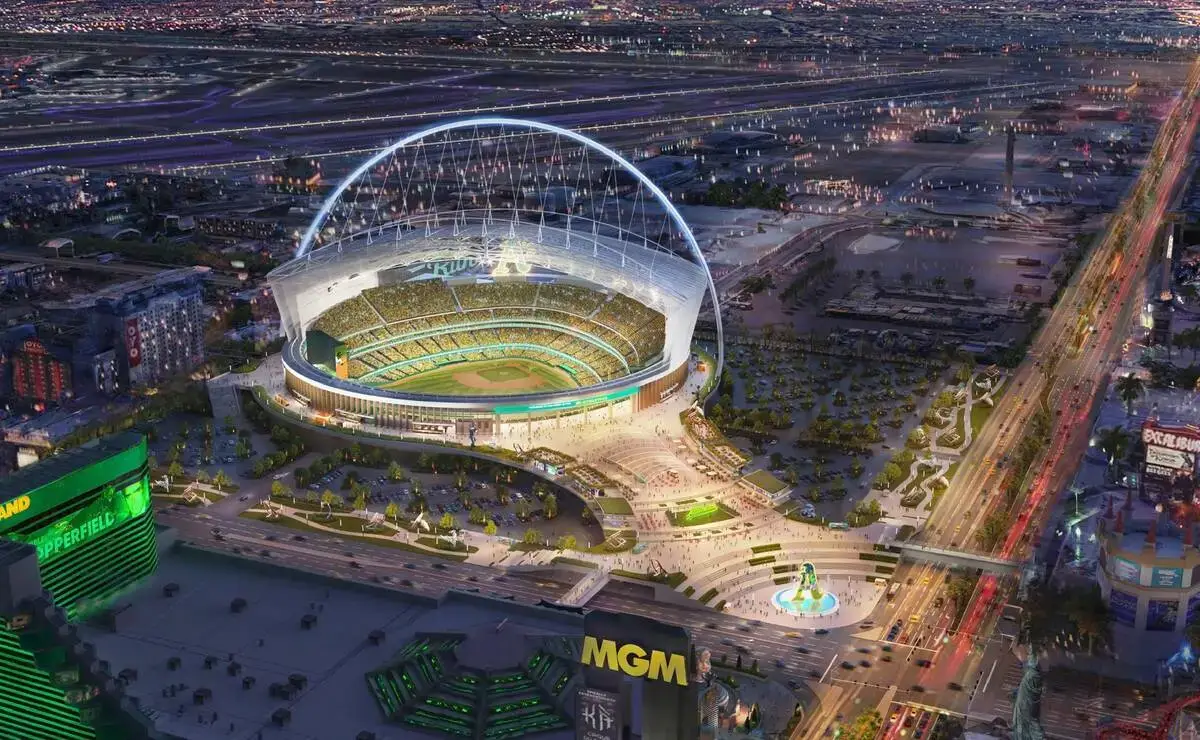Public Funding Debate Reignited by Las Vegas Ballpark Proposal
The debate over public funding for private sports clubs has resurfaced with the proposal for a new ballpark in Las Vegas by the Oakland Athletics.
This issue has pitted Nevada’s influential tourism industry. Including trade unions, against progressive groups across the country who voice concerns about using tax dollars to finance sports stadiums. Instead of allocating them to essential public services and schools.
The discussion surrounding the potential relocation of the Oakland Athletics from California to Nevada echoes similar debates in different parts of the country.
Politicians have approved significant amounts of taxpayer money to support sports clubs in cities. Such as Buffalo, New York; Atlanta; and Nashville, Tennessee.
However, in Tempe, Arizona, voters rejected a $2.3 billion proposal that included a new arena for the NHL’s Arizona Coyotes.
To advocate for their new stadium, the Oakland A’s organization has hired numerous lobbyists. To persuade lawmakers in Nevada’s capital to approve the $1.5 billion project.
They argue that it will create jobs, boost the economy, and contribute to the tourism industry without increasing taxes.
The pitch emphasizes Las Vegas’ growing success in the sports arena, with the presence of NFL, NHL, and WNBA teams. That were absent or based elsewhere just seven years ago.
Opposition to Funding and Concerns About Economic Impact

Opponents of providing incentive packages to professional sports teams argue that tax credits. And public financing do not bring substantial benefits.
They point to mounting evidence suggesting that the dollars generated from new stadiums. Do not necessarily benefit nearby resorts and restaurants as anticipated.
Moreover, doubts arise about whether the A’s investment in the communit. Including initiatives like homelessness prevention and outreach, would materialize if the ball club’s budget is primarily focused on covering stadium costs.
Last month, Governor Joe Lombardo introduced a stadium financing bill in the final weeks of the legislative session.
The bill proposes up to $380 million in public assistance, including transferable tax credits and taxpayer-backed loans. To help finance the stadium and a special tax district around it.
Additionally, the A’s would be exempt from property taxes for the publicly owned stadium. And Clark County would contribute $25 million in credit for infrastructure expenses.
However, lawmakers still need to vote on both the stadium and film proposals before the legislative session adjourns.
Economists generally question the net impact of bringing new stadiums to cities. Whether positive or negative, when public assistance is involved.
The effectiveness of a Las Vegas stadium would rely on attracting a significant number of visitors. Who would not typically visit the city.
If the stadium is merely an additional asset within an existing structure, much of the spending would likely remain concentrated in neighboring attractions. Such as resorts and restaurants.
Also critics argue that the economic benefits touted by proponents of public financing are insufficient to justify the substantial expenditure.
The Revival of the Public Funding Debate for Sports Stadiums

Supporters of the stadium proposal, including the powerful Culinary Union, emphasize the potential economic value of the project.
The Culinary Union, representing 60,000 workers on the Las Vegas Strip, has endorsed the A’s plan after an agreement to allow stadium employees to unionize.
The endorsement is significant as the Culinary Union wields considerable influence and is seen as a key force in mobilizing Democratic campaigns in the state. They prioritize supporting projects that bring union jobs with benefits like healthcare and pensions.
The issue of public funding for sports stadiums has been a topic of discussion in recent decades, with some deals being mostly publicly funded while others differ.
Examples of both scenarios are visible in Las Vegas, such as the publicly funded Allegiant Stadium, home to the Las Vegas Raiders, and the privately financed T-Mobile Arena, home to the NHL’s Las Vegas Golden Knights. The uniqueness of the Las Vegas market, heavily reliant on tourism and entertainment, adds complexity to the debate.
In conclusion, the proposal for a new ballpark in Las Vegas has reignited the debate over public funding for sports stadiums. Supporters argue that it will bring economic benefits and bolster the city’s status as a sports hub, while opponents raise concerns about diverting tax dollars from essential services.
The final outcome remains uncertain as lawmakers weigh the economic impact and the potential benefits and drawbacks of public financing for the proposed stadium.





